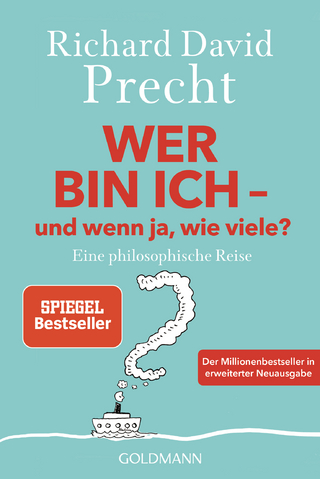
Ultimate Freedom
Beyond Free Will
Seiten
2023
Oxford University Press Inc (Verlag)
978-0-19-769502-9 (ISBN)
Oxford University Press Inc (Verlag)
978-0-19-769502-9 (ISBN)
Philosopher Keith Lehrer outlines a view of freedom of choice based on a Kahneman-derived distinction between what he calls a first order system that is intuitive and immediate, and a higher order system of response, which he calls a second system of scientific analysis. Lehrer argues that freedom of choice is an expression of attention to the higher order system, and that what is often called free will is often just doing what you desire, a response that neglects consideration of other options. Freedom of choice acknowledges those options, and preference among them forms in response to the acceptance of evidence. We might suppose that in responding to beliefs that one has attended to evidence, but that is a delusion, because our higher order acceptance of evidence can be overwhelmed by the fixation created by first level belief.
What is the difference between just doing what you desire because it feels good and acting on what you prefer because of scientific acceptance? Lehrer points to a form of preference that he says is the ultimate explanation of choice -- what he calls a power preference. It is a preference that loops back on to itself, a fixed-point vector, and suffices to explain choice. Lehrer's theory of such a power preference includes scientific explanation and consistently accommodates determinism. It is itself a scientific and philosophical explanation, and an ultimate principle of explanation. Lehrer terms the freedom of choice expressing that preference “ultimate freedom”-- the source of our knowledge and agency both in theory, directing what we rationally accept, and in practice directing freedom of choice.
What is the difference between just doing what you desire because it feels good and acting on what you prefer because of scientific acceptance? Lehrer points to a form of preference that he says is the ultimate explanation of choice -- what he calls a power preference. It is a preference that loops back on to itself, a fixed-point vector, and suffices to explain choice. Lehrer's theory of such a power preference includes scientific explanation and consistently accommodates determinism. It is itself a scientific and philosophical explanation, and an ultimate principle of explanation. Lehrer terms the freedom of choice expressing that preference “ultimate freedom”-- the source of our knowledge and agency both in theory, directing what we rationally accept, and in practice directing freedom of choice.
Keith Leherer is Regents Professor Emeritus and Active Research Professor at the Center for the Philosophy of Freedom, University of Arizona. He is the author of 9 books, 209 articles, and the editor or co-editor of 11 others. He is a Fellow of the American Academy of Arts and Sciences
Acknowledgements
Introduction
Chapter 1: Preference, Reason and Agency
Chapter 2: Freedom of Choice: Source and Leeway
Chapter 3: Reason, Preference and Freedom
Chapter 4: Determinism, Ultimate Preference and Consistency
Chapter 5: Freedom of Choice and Conflict Resolution
Chapter 6: Ultimate Preference for Accepting a World
Epilogue
Bibliography
Appendix: On Keith Lehrer's Conception of a Power Preference
By Carl Wagner
| Erscheinungsdatum | 14.09.2023 |
|---|---|
| Zusatzinfo | 3 b/w illustrations |
| Verlagsort | New York |
| Sprache | englisch |
| Maße | 203 x 150 mm |
| Gewicht | 318 g |
| Themenwelt | Geisteswissenschaften ► Philosophie ► Metaphysik / Ontologie |
| Wirtschaft ► Volkswirtschaftslehre ► Mikroökonomie | |
| ISBN-10 | 0-19-769502-7 / 0197695027 |
| ISBN-13 | 978-0-19-769502-9 / 9780197695029 |
| Zustand | Neuware |
| Informationen gemäß Produktsicherheitsverordnung (GPSR) | |
| Haben Sie eine Frage zum Produkt? |
Mehr entdecken
aus dem Bereich
aus dem Bereich
eine philosophische Reise
Buch | Softcover (2024)
Goldmann (Verlag)
14,00 €
Auf dem Weg zu einer postkritischen Philosophie
Buch | Softcover (2023)
Suhrkamp (Verlag)
38,00 €


